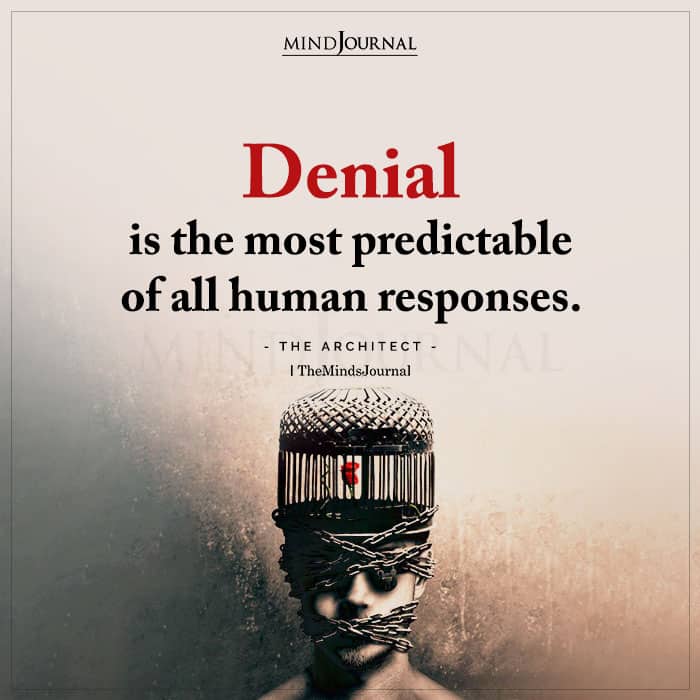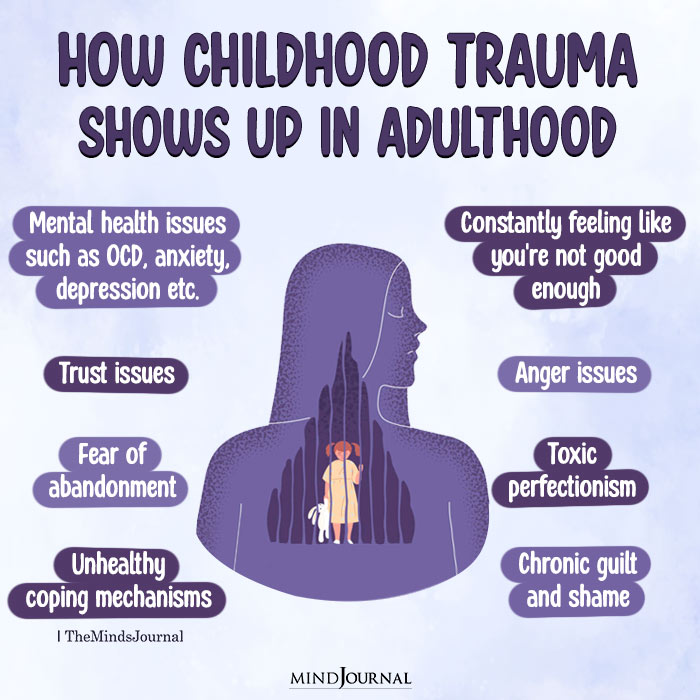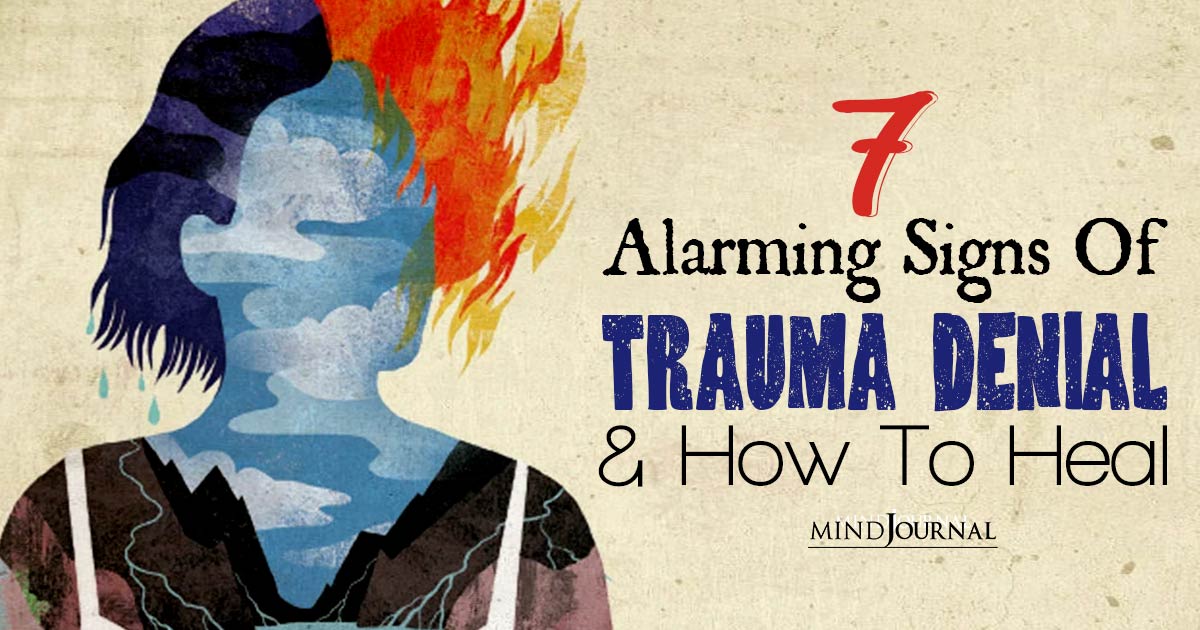Have you ever found yourself facing difficulty in acknowledging the gravity of your experiences? Do you sense an internal resistance that is causing trauma denial?
Let’s look at some signs of denial after trauma that show you might be doing this and figure out how to resolve past trauma. We will also help you understand trauma denial by showcasing the movie, ‘Shutter Island’ and how trauma denial can affect a person.
But first, let us understand in detail what is trauma denial.
What is Trauma Denial?
Trauma denial is a way our minds try to handle really tough experiences. It’s like putting up a wall between ourselves and something too painful to deal with.
When something really bad happens, our brains can go into protection mode, trying to make things feel normal again.

For example, if someone goes through a really scary event, they might try to act like everything’s okay and forget it ever happened.
This might help them feel better at first, like putting on a bandage. But as time goes on, that wall can start to cause more problems.
According to researchers, this denial can be helpful temporarily, giving us a chance to stand back up. But if we keep ignoring what happened, it can make us feel worse in the long run.
Dealing with the tough stuff isn’t easy, but facing it can help us feel stronger and more whole in the end. It’s like taking off a heavy backpack you’ve been carrying around for too long.
Related: 8 Reasons Why People Deny Childhood Trauma And Its Results
What is Trauma?
Trauma is a widespread issue resulting from exposure to distressing or life-threatening events, leading to lasting adverse effects on an individual’s well-being, encompassing their mental, physical, social, emotional, and spiritual health.
Some experiences that can be traumatic include:
- Physical, sexual, and emotional mistreatment
- Neglect during childhood
- Residing with a family member facing mental health or substance use issues
- Unexpected and unexplained separation from a loved one
- Economic hardship
- Racial discrimination and oppression
Community violence, warfare, or acts of terrorism
Although trauma can occur at any point in a person’s life, its impact can be particularly enduring for children, whose developing brains are especially susceptible.
These experiences, often known as adverse childhood experiences (ACEs), are prevalent across various sectors of society. Research indicates that 62% of adults in the United States have encountered at least one ACE, and 25% have faced three or more ACEs or childhood traumas.
Related: Free PTSD Test: Post Traumatic Stress Disorder Assessment
Childhood Trauma
Childhood trauma refers to the emotional, physical, or psychological distress experienced during early development, typically resulting from adverse experiences or events that significantly disrupt a child’s sense of safety, security, or well-being.

These distressing events can have long-lasting effects on a child’s cognitive, emotional, and social development, often influencing their behavior and mental health well into adulthood.
Without support, childhood trauma can last into adulthood. It can cause emotional and behavioral issues. These may include PTSD, anxiety, depression, and relationship difficulties.
Related: 8 Types Of Childhood Trauma And How To Heal From Them
Trauma Denial in Movies
In the movie “Shutter Island,” directed by Martin Scorsese, the theme of trauma denial is portrayed through the character of U.S. Marshal Teddy Daniels, played by Leonardo DiCaprio.

Teddy is assigned to investigate the disappearance of a patient from a mental institution located on the remote Shutter Island.
Throughout the film, it becomes apparent that Teddy is grappling with deep-seated trauma from his past, particularly related to his experiences during World War II.
The consequences of this denial after trauma are portrayed through the increasing fragmentation of Teddy’s psyche, leading to hallucinations, paranoia, and an inability to distinguish between reality and fantasy.
“Shutter Island” serves as a stark reminder of the importance of addressing and processing past traumas to avoid harsh consequences.
Symptoms of Denial after Trauma
The following are some of the common signs of trauma denial that you might be showing in your behavior:
1. Downplaying the Severity of the Event
Sometimes, when something really tough happens, we try to make it seem not so bad. It’s like telling ourselves, “It wasn’t that big of a deal.” But deep down, the impact might be more significant than we let on.
2. Steering Clear of Triggers
Have you ever felt like avoiding places or things that remind you of a bad memory? It’s like trying to stay away from anything that brings back those tough feelings, hoping to protect yourself from getting hurt again.
3. Finding Solace in Distraction
When things get tough, it’s common to turn to activities that help us forget, like working too much or using something to make the pain go away, even for a little while. But sometimes, these distractions can make it harder to deal with what really happened.
4. Feeling Detached
After going through something really hard, it’s possible to feel like you can’t connect with your emotions the way you used to. It’s like a shield that comes up, making it hard to feel anything at all.
5. Post Traumatic Stress
Tough experiences can leave us feeling scared or anxious, especially when something reminds us of what happened. It’s like always being on edge, unable to shake the feeling that something bad might happen again.
Related: Post-Traumatic Stress Disorder (PTSD): 13 Warning Signs To Know
By recognizing these patterns and seeking support from trusted friends or mental health professionals, you can pave the way for a more authentic and holistic recovery.
Let us now look at how to resolve past trauma.
How to resolve past trauma
Resolving past trauma is a multi-faceted process that involves acknowledging the impact of the traumatic experience and actively working toward healing and recovery.
Here are some essential steps that can help in the resolution of past trauma:
1. Acknowledge the Trauma
The first step is acknowledging the existence of the trauma and accepting its impact on your life. It’s crucial to recognize that your experiences are valid and deserving of attention and care.
2. Seek Professional Help
Consider reaching out to a qualified mental health professional, such as a therapist or counselor, who can provide you with the necessary support and guidance throughout your healing journey. A trained professional can offer valuable insights and tools tailored to your specific needs.
Related: Online Therapy: 5 Benefits, Tips To Find The Best Therapist
3. Practice Self-Care
Engage in self-care activities that promote your overall well-being, such as regular exercise, mindfulness practices, and maintaining a healthy lifestyle. Nurturing your physical and emotional health can create a strong foundation for the healing process.
4. Establish a Support Network
Surround yourself with supportive and understanding individuals who can provide empathy and encouragement. Building a strong support network can offer a sense of belonging and validation, helping you feel less isolated during your healing journey.
5. Explore Therapeutic Techniques

Consider exploring various therapeutic techniques, such as cognitive-behavioral therapy, exposure therapy, or eye movement desensitization and reprocessing (EMDR), depending on your specific needs and preferences. These techniques can aid in processing and resolving traumatic memories.
6. Practice Mindfulness
Cultivate mindfulness practices, such as meditation, deep breathing exercises, and yoga, to develop a greater sense of self-awareness and emotional regulation. Mindfulness can help you stay grounded in the present moment and alleviate the impact of intrusive thoughts and memories.
7. Engage in Creative Outlets
Explore creative outlets, such as art, music, or writing, as a means of expressing and processing your emotions. Engaging in creative activities can provide a healthy outlet for emotional release and promote a sense of self-discovery and empowerment.
Remember that the process of resolving past trauma is unique to each individual, and it’s critical to be patient and kind with yourself along the way.
Accepting Your Past
As we’ve journeyed through the complexities of dealing with tough experiences, it’s okay to admit that facing them can be hard. Sometimes, we tend to put up walls to protect ourselves, trying to make things feel normal again.
But deep down, we know it’s not that simple. Understanding what is trauma denial is your first step towards recovery.
Recognizing the signs of trauma denial can be the first step toward healing. It’s like understanding yourself a little better, one step at a time. You’re now no longer on your own in this journey.
Remember, it’s alright to take your time. Think of it as taking off a heavy load you’ve been carrying for too long. You’re strong, and you can do this.
Frequently Asked Questions (FAQs)
1. What is trauma?
Trauma refers to the emotional, physical, or psychological distress experienced due to distressing or life-threatening events. It can have long-lasting effects on an individual’s well-being, including their mental, physical, social, emotional, and spiritual health.
2. What is trauma denial?
Trauma denial is a coping mechanism where individuals try to distance themselves from a distressing experience. It’s like putting up a protective wall to avoid dealing with the pain, but it can lead to further complications if not addressed.
3. What are some symptoms of denial after trauma?
Signs of denial after trauma include downplaying the severity of the event, avoiding triggers, seeking solace in distractions, feeling emotionally detached, experiencing post-traumatic stress, and creating alternate narratives to distance oneself from the trauma.
4. How to resolve past trauma?
Resolving past trauma involves acknowledging the impact of the traumatic experience, seeking professional help, practicing self-care, building a support network, exploring therapeutic techniques, practicing mindfulness, and engaging in creative outlets to express and process emotions.
5. What is childhood trauma?
Childhood trauma refers to the emotional, physical, or psychological distress experienced during early development, often resulting from adverse experiences that disrupt a child’s sense of safety and well-being.










Leave a Reply